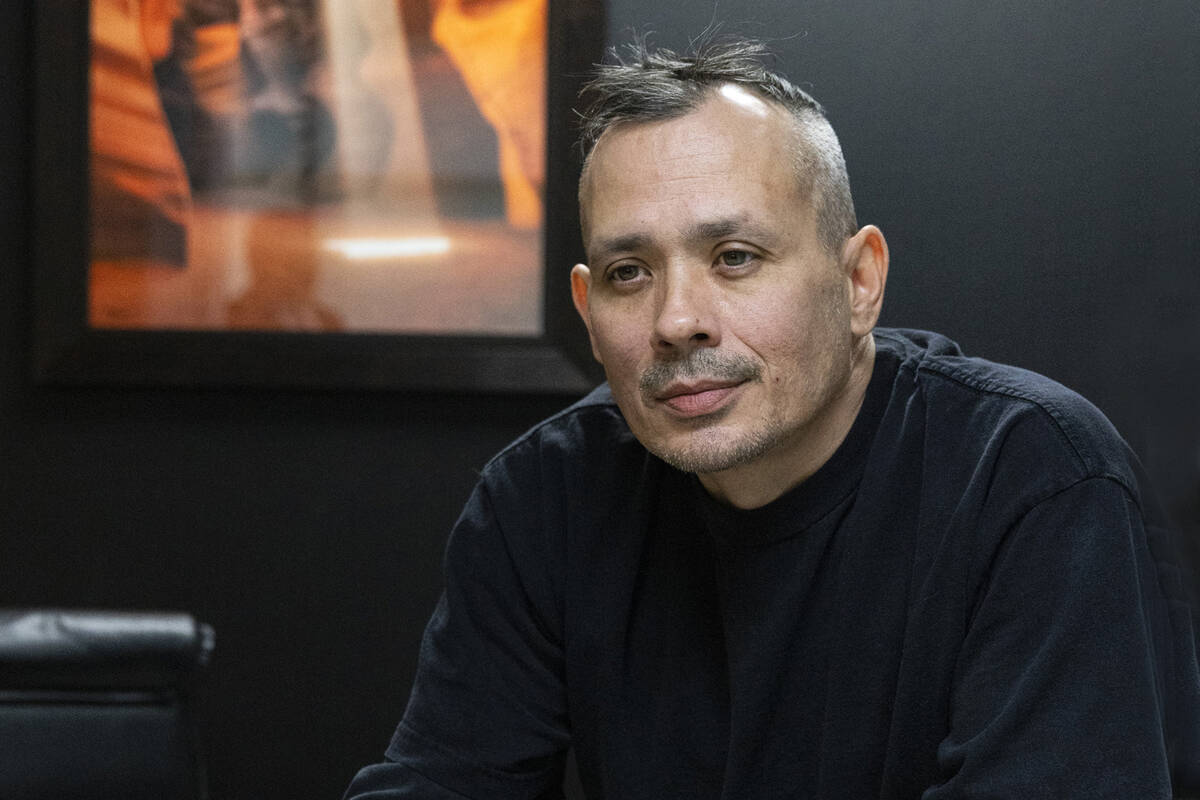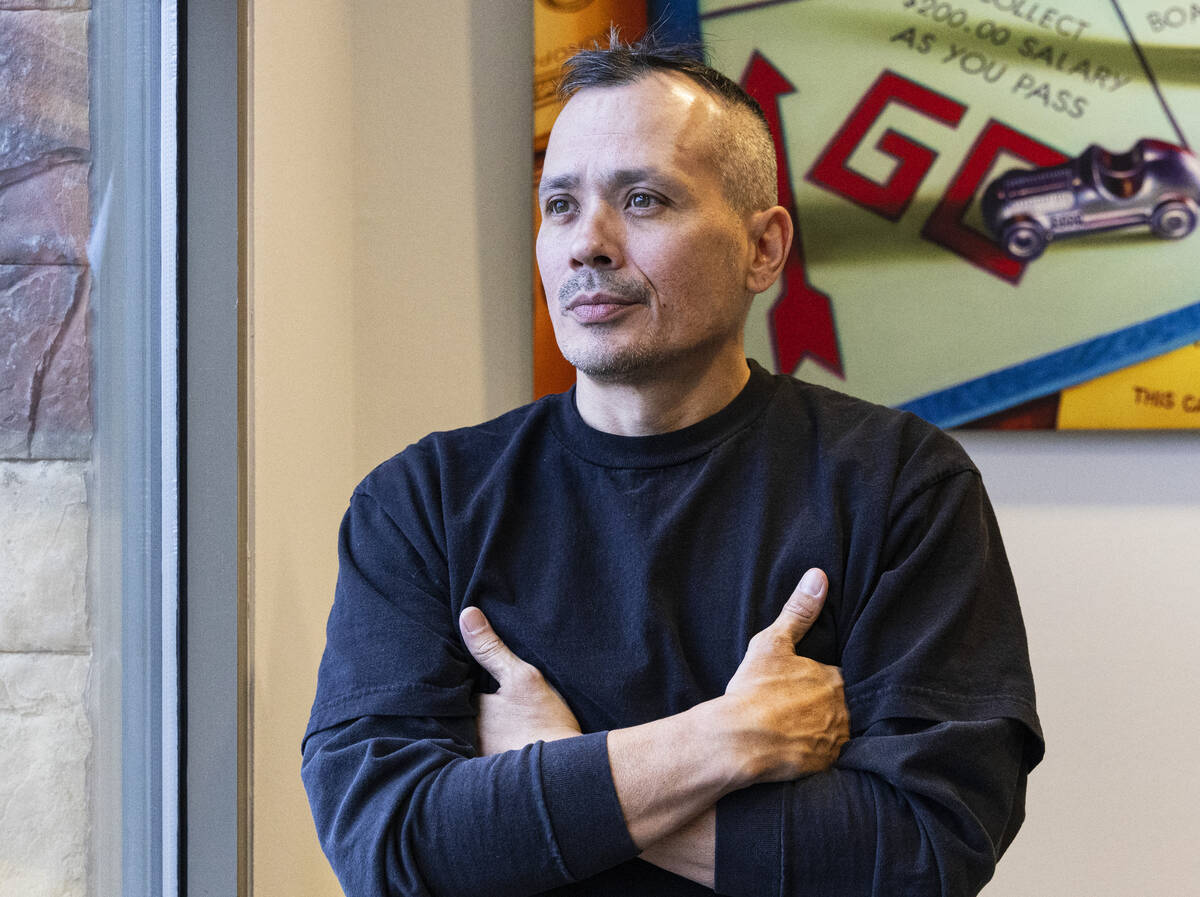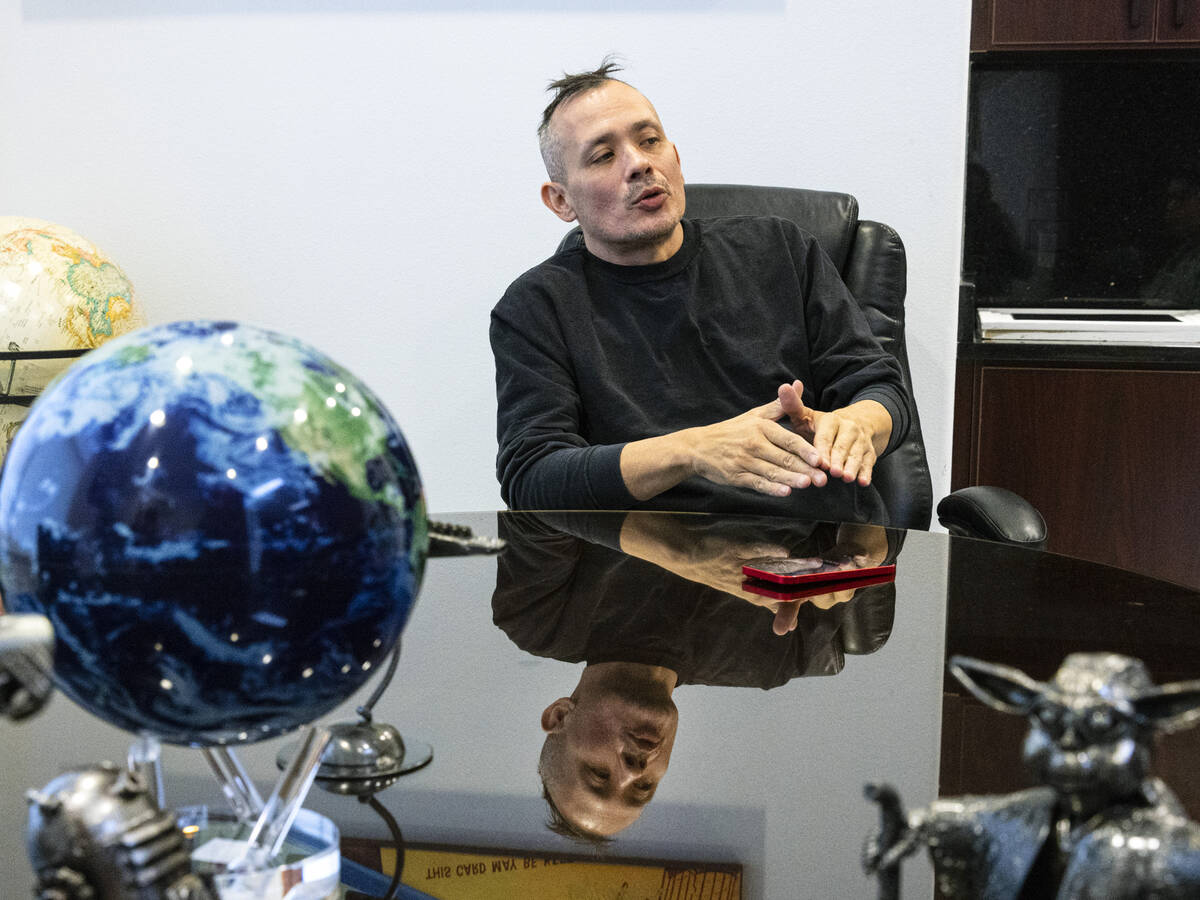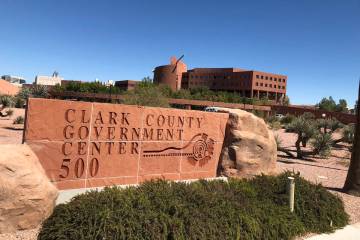Man says plasma company falsely told him he had HIV. Now he’s suing
Jose Rivera is banned from donating plasma in the U.S. and Canada because of his HIV-positive status on the National Donor Deferral Registry. If he had a medical emergency, it would be difficult to receive a blood transfusion or organ transplant; he in turn cannot donate to a family member in need.
The only problem: Jose Rivera does not have HIV.
As the COVID-19 pandemic faded in 2021, plasma donations rose in Las Vegas. Plasma, the liquid component of blood, is commonly needed for victims of trauma or immune deficiencies, according to the Red Cross.
At the time, Rivera was doing carpet work and demand began to falter. With a potential payout of up to hundreds of dollars a month for plasma donors, he saw the opportunity for a win-win.
Rivera’s first eight sessions donating at the CSL Plasma center on Buffalo Drive and Flamingo Road went off without a hitch, until one day when he was inexplicably denied.
“They’re like, ‘We’ll contact you soon,’ ” Rivera told the Las Vegas Review-Journal. “So I had to wait about three weeks, and I received a FedEx in the mail. I opened it, and it said I was HIV-positive.”
Rivera was floored. His first thought was that he was trapped and his life was over. That then turned to fear, and then disbelief.
The U.S. Department of Health and Human Services estimates that roughly 13 percent of Americans with HIV have no idea they have it.
For a moment, standing in his front yard and holding the FedEx package, Rivera had to contend with the possibility that he was part of that minority. He described the feeling of embarrassment having to tell the news to the mother of his son, his previous partners and his mother.
“When I told my mother, when I showed her the (test result), she wasn’t really sympathetic,” Rivera laughed. “She was like: ‘You should’ve worn condoms.’”
About a week after the result, he received a call from the Southern Nevada Health District. His results from CSL had been reported to the state, and they scheduled a test to confirm his status.
A few days later, after telling his family he had tested positive for one of the most stigmatized viruses in American history, Rivera was handed a slip of paper showing that he was actually negative for HIV.
His relief was followed by the million-dollar question: How did this happen?
‘Confusion, frustration, worries’
False positive results for HIV are rare, according to the Centers for Disease Control and Prevention, but can occur due to specimen mix-ups, mislabeling or improper handling. There are also medical conditions that could cause a positive result, such as an autoimmune disorder.
When Rivera attempted to show CSL, the plasma center, the new test results, he said they insisted that the problem lay with him and that their process was foolproof.
From then on, it was the cold shoulder. He said he called the corporate headquarters 10 times, which took him to a third-party service, with each call ending with the same response from CSL: “We’ll get back in touch with you in a week.”
The frustration felt overwhelming, and in the meantime, he had no way of getting off the National Donor Deferral Registry (NDDR). As far as medical authorities are concerned, he is HIV-positive.
“I was trying to get help from anybody, and no one had any type of clue,” Rivera said. “I’m not a bad person or anything, but I wanted to swear at whoever. … I was just totally frustrated.”
Out of options and needing help, he filed a lawsuit.
After Rivera received a second negative test result, his attorney Al Lasso sent a letter to CSL requesting they assist in his client’s removal from the national registry.
The letter was ignored, according to Lasso. In February, they filed a lawsuit against CSL Plasma in District Court under the Nevada Deceptive Trade Practices Act, which Lasso says is meant to grant consumers a cause of action for false, misleading or deceptive acts or practices.
“Just the fact that it weighed on him is emotional distress,” Lasso said. “Finding out you’ve been falsely placed in the NDDR can obviously cause some confusion, frustration, worries about health and misconceptions about him or complications during medical procedures and evaluations in the future.”
Questions of oversight
On its website, CSL Plasma says it has over 300 plasma collection centers in China, Europe and the United States and employs over 15,000 people.
Rhonda Sciarra, a spokesperson for CSL Plasma, defended the company’s policies and noted every plasma donor signs a consent form that communicates the potential for the national registry to be notified based on test results.
“It is important to realize that screening test results are not conclusive,” Sciarra wrote in an email. “A positive test result does not indicate a person has a particular disease and a negative test result does not mean a person is disease-free.”
All donors who test “reactive” for the presence of specific viruses are added to the National Donor Deferral Registry and are prohibited from donating source plasma at CSL Plasma and at NDDR-participating licensed and industry-certified centers in the U.S. and Canada, Sciarra said.
“The NDDR is an important component of the industry-driven safety measures that help ensure the safety of the therapies made from plasma,” she wrote.
The statement did not specify the company’s policy if a patient is given an inaccurate result, but Sciarra declined to comment further, citing the ongoing litigation.
A spokesperson with the U.S. Food and Drug Administration, which requires blood centers to maintain lists of unsuitable donors, referred the Review-Journal to the Plasma Protein Therapeutics Association, because the NDDR “is not a function of the FDA.”
However, an email statement from the plasma association said it is unable to add or remove information from the national registry, and they cannot answer questions on false-positive tests because they “do not possess expertise on the highly complex laboratory tests.”
“The NDDR is a tool used only by the plasma industry to help protect the integrity of the supply of plasma used for further manufacture,” the statement said. “The NDDR falls under FDA regulations and, as such, will always lean towards caution. Plasma donors that have had a reactive test for HIV, HBV (Hepatitis B) or HCV (Hepatitis C) are entered into the registry as a precaution.”
The FDA did not respond to a follow-up request for comment Wednesday.
A spokesperson with the Southern Nevada Health District referred the Review-Journal to the Nevada Department of Health and Human Services.
Dawn Cribb, a spokesperson for Nevada HHS, said in a statement that health providers are required to report specific diseases and conditions, such as HIV, to their local health authority. She said the process was vital to control and prevent the spread of infectious diseases.
“The State of Nevada does not report any information to the National Donor Deferral Registry or any other donor/organ registry and does not have the ability to remove individuals from the NDDR registry or any other donor/organ registry,” Cribb said in an email.
Next steps
The lawsuit is in its early stages, with a trial set for March 2025, according to Lasso, so it could be a long time until Rivera could see restitution.
Lasso said the ultimate goal is to get Rivera off any database for those who are HIV-positive. They are asking for damages for emotional distress and lost wages after being prohibited from donating blood.
Rivera is hopeful that he’ll be able to get his name off the national registry and compensation for the ordeal.
He also hopes to see some kind of regulation or law instituted to ensure something like this doesn’t happen to anyone else. He suggested that a second positive test be recorded before someone is put on a database.
In the meantime, Rivera will have to wait to see how else one test result could continue to upend his life.
“They had no kind of remorse and no kind of accountability,” he said. “They didn’t want to work with me or anything. It was just frustrating.”
Contact Christian Casale at ccasale@reviewjournal.com or 702-380-4551. Follow @vanityhack on Twitter.































